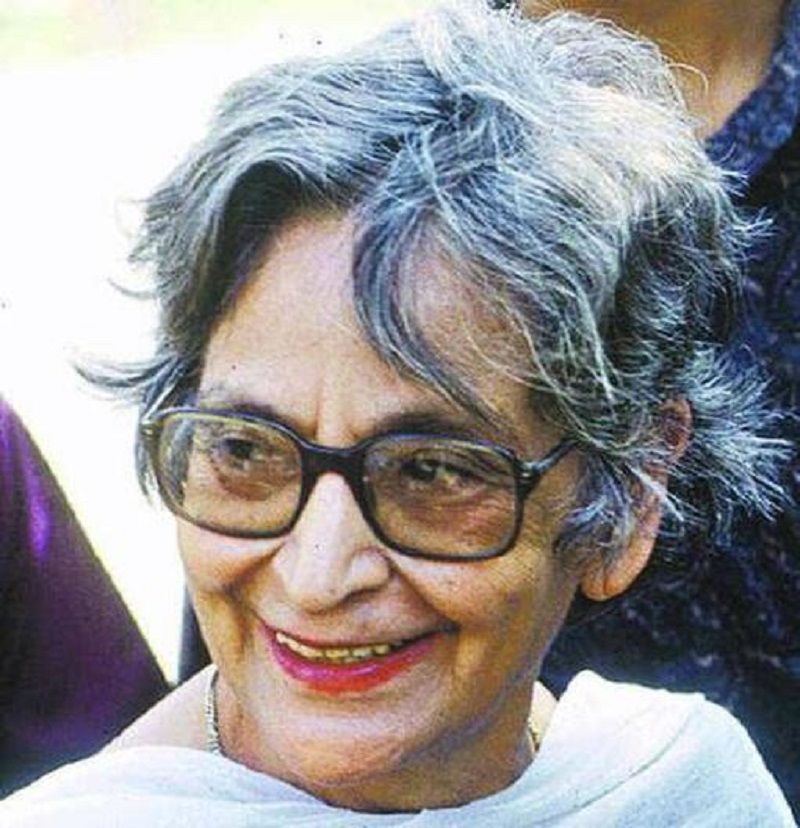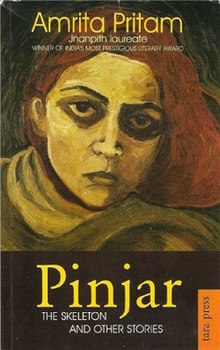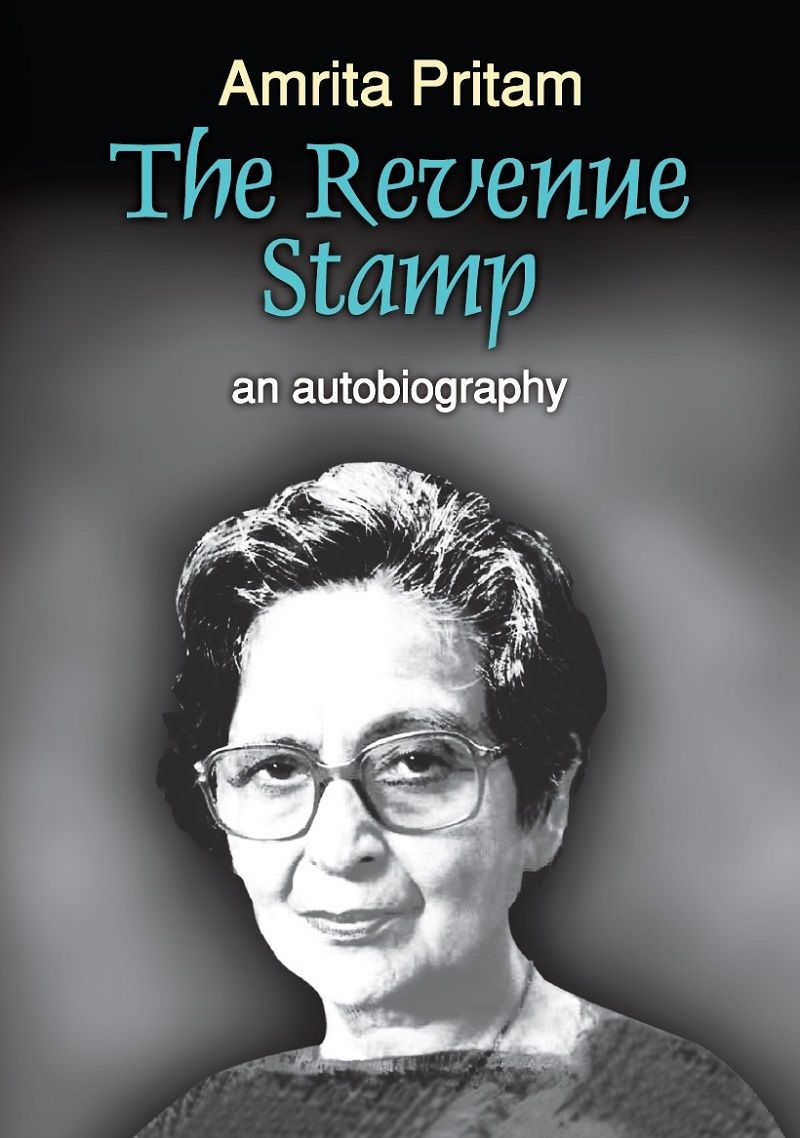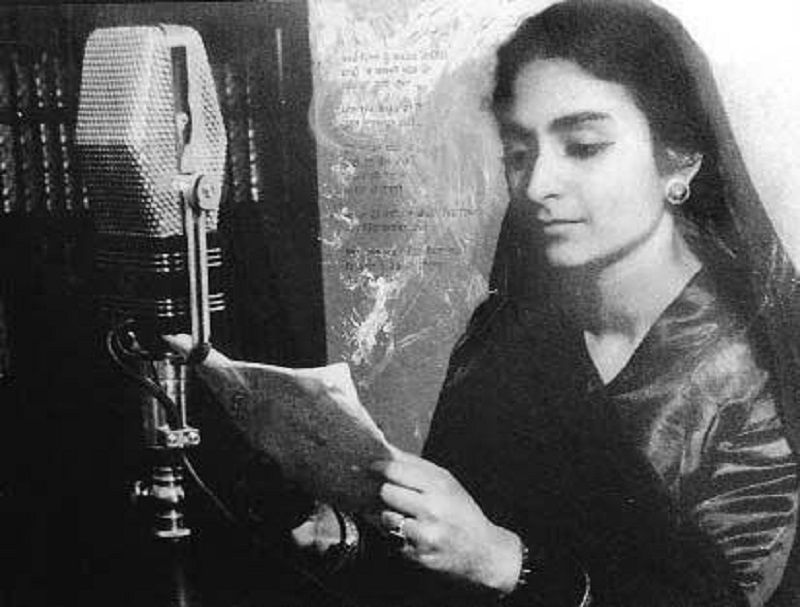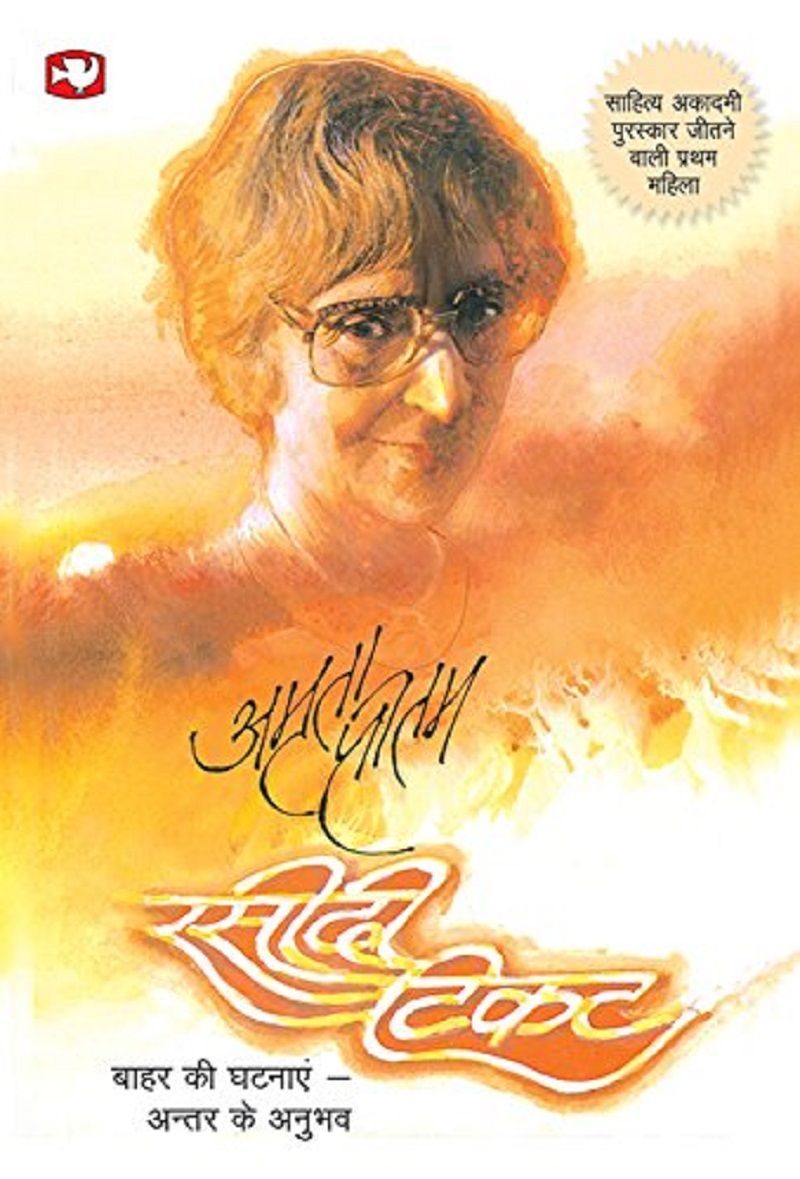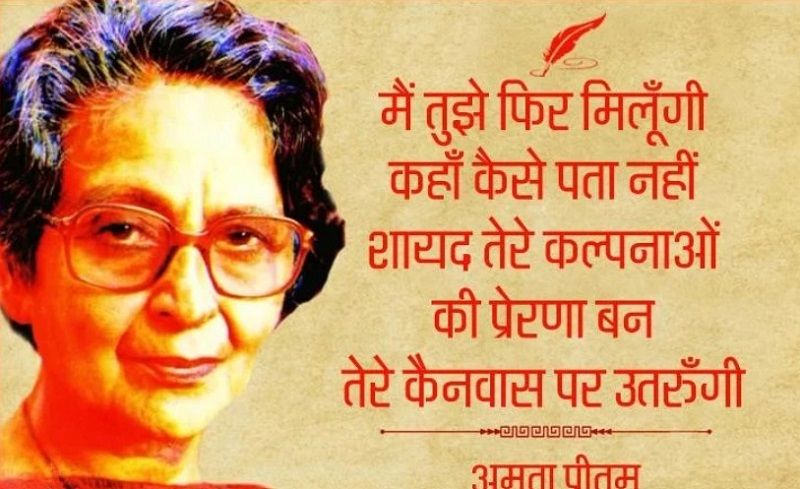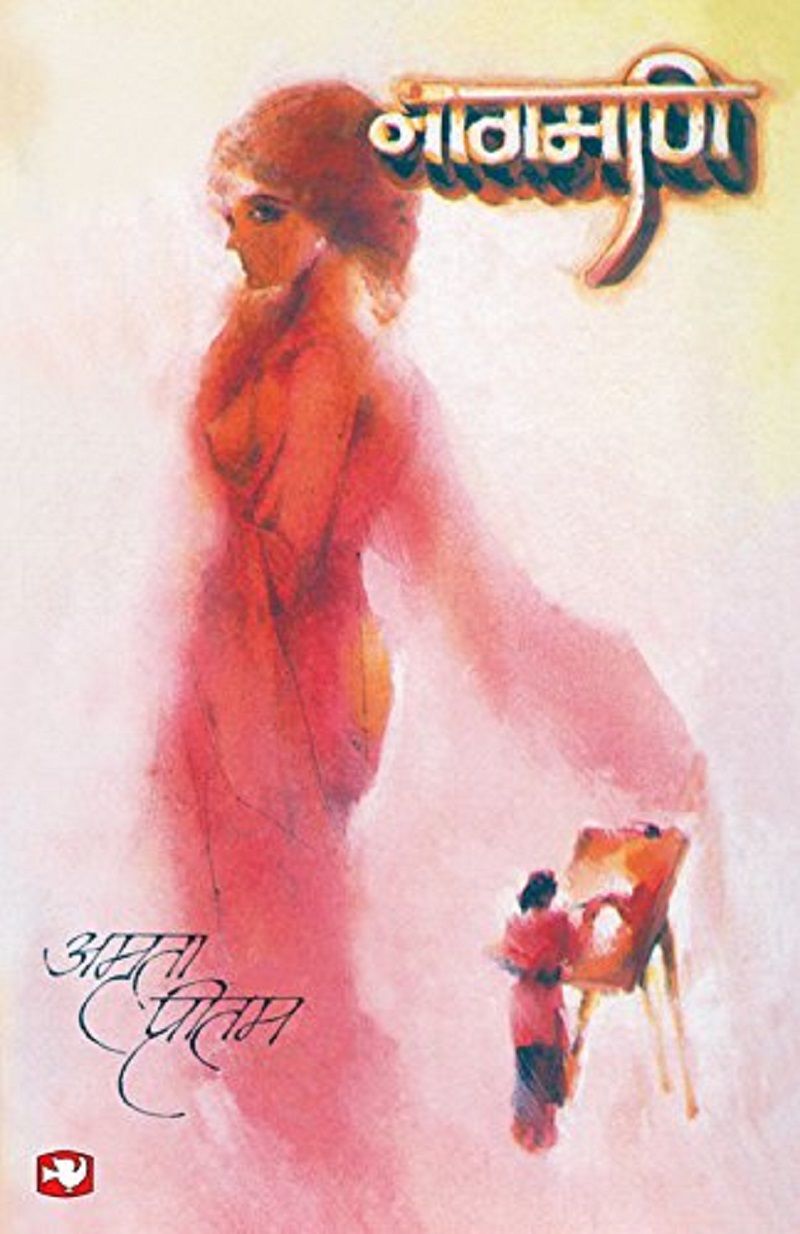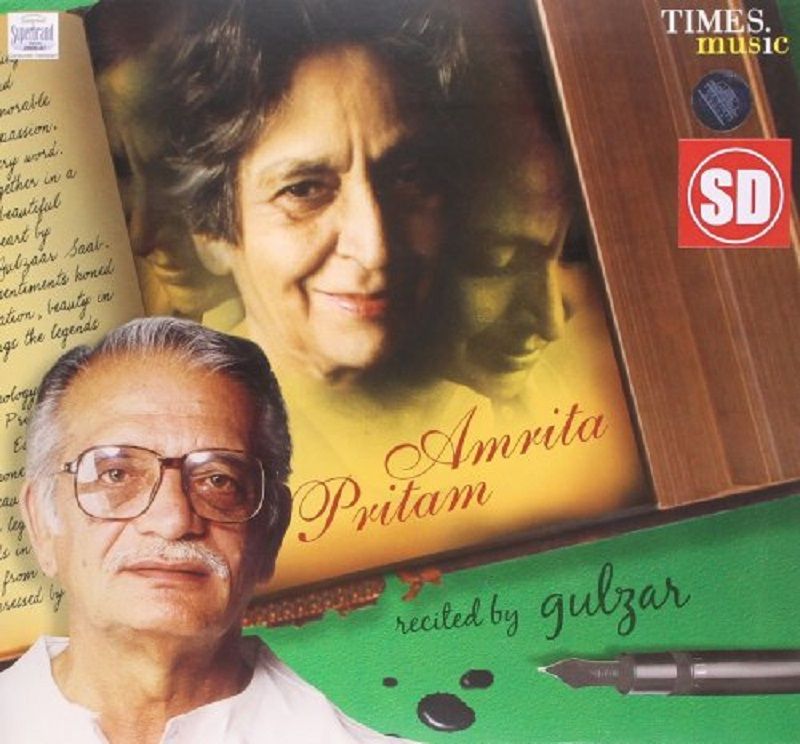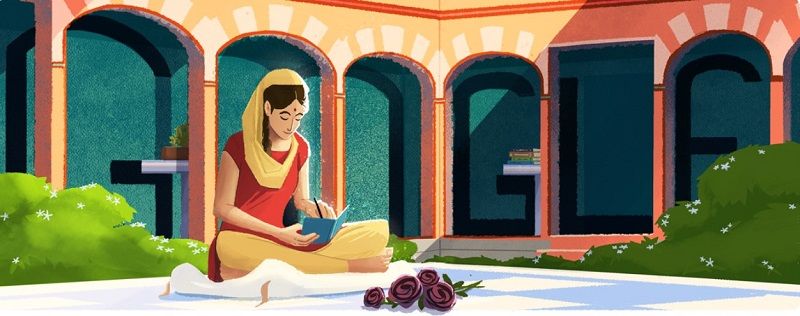Amrita Pritam Age, Death, Husband, Children, Family, Biography & More
| Bio/Wiki | |
|---|---|
| Birth name | Amrit Kaur [1]Outlook India |
| Profession(s) | Novelist, Poet |
| Famous for | Writing Punjabi and Hindi poets and novels |
| Physical Stats & More | |
| Height (approx.) | in centimeters- 165 cm in meters- 1.65 m in feet & inches- 5’ 5” |
| Eye Colour | Black |
| Hair Colour | Grey |
| Career | |
| Awards, Honours, Achievements | • 1956: Sahitya Akademi Award for the Punjabi poem, Sunehade • 1969: Padma Shri Award 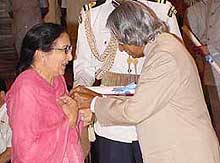 • 1973: Delhi University confers its D. Litt. • 1973: Jabalpur Uniersity confers its D. Litt. • 1979: Vaptsarov Award from the Republic of Bulgaria • 1981: Bharatiya Jnanpith Award for the book Kagaz Te Canvas • 1987: Vishwa Bharati, Shantiniketan, confers its D. Litt. • 1987: Degree of Officer dens, Ordre des Arts et des Lettres (Officier) by the French Government • 2004: Padma Vibhushan • 2004: Sahitya Akademi Fellowship |
| Personal Life | |
| Date of Birth | 31 August 1919 (Sunday) |
| Birthplace | Gujranwala, Punjab, British India |
| Date of Death | 31 October 2005 |
| Place of Death | New Delhi |
| Age (at the time of death) | 86 Years |
| Death Cause | Died in sleep after suffering from long illness [2]Hindustan Times |
| Zodiac sign | Scorpio |
| Signature |  |
| Nationality | Indian |
| Hometown | Gujranwala |
| Religious Views | In her autobiography, she wrote that she lost faith in God after her mother's death and became an atheist. [3]Outlook India |
| Ethnicity | Sikhism [4]The Wire |
| Controversy | Amrita was involved in a lot of controversies because she used to write books that were based on women rights and feeling. She also wrote poems about partition. She was often in controversies due to her affrais with noted poets. In 2015, a writer, Gurbachan Singh Bhullar wrote a novel in which he talked about Amrita's affair with Sahir and Imroz. In the novel, he alleged that Amrita was a selfish woman using men to her advantage to achieve fame. Later, one of the critique, Amiya Kanwar, reacted to the allegation and said, They were attracted to her beauty and talent yet they resent her fame. Even when she became the first Punjabi writer to win the Jnanpith Award in 1981, some male Punjabi writers wrote bitter articles about her. This trend has increased after her death because she is not there to counter them. Also some are doing it to attract attention. [5]Hindustan Times |
| Relationships & More | |
| Marital Status (at the time of death) | Divorced |
| Affairs/Boyfriends | • Sahir Ludhianvi (poet) 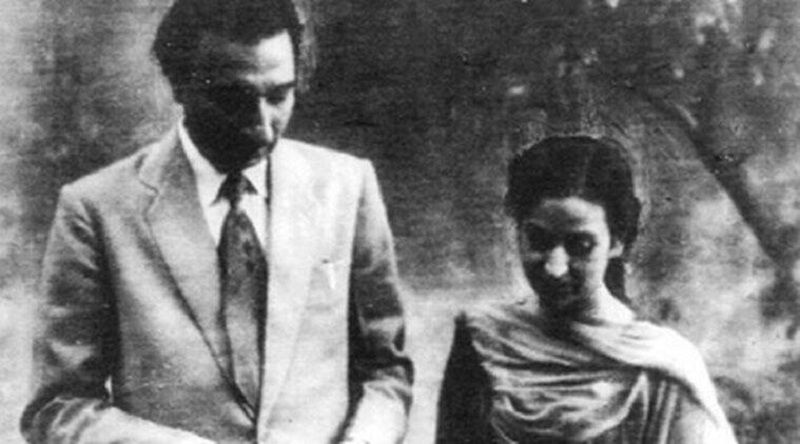 • Inderjeet Imroz (poet) 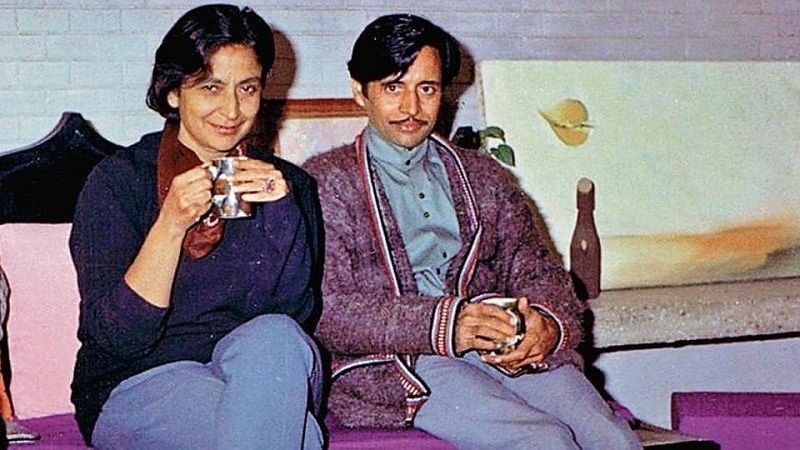 |
| Marriage Date | Year, 1936 |
| Family | |
| Ex-husband | Pritam Singh (editor) |
| Children | Son- Navraj Kwatra (deceased)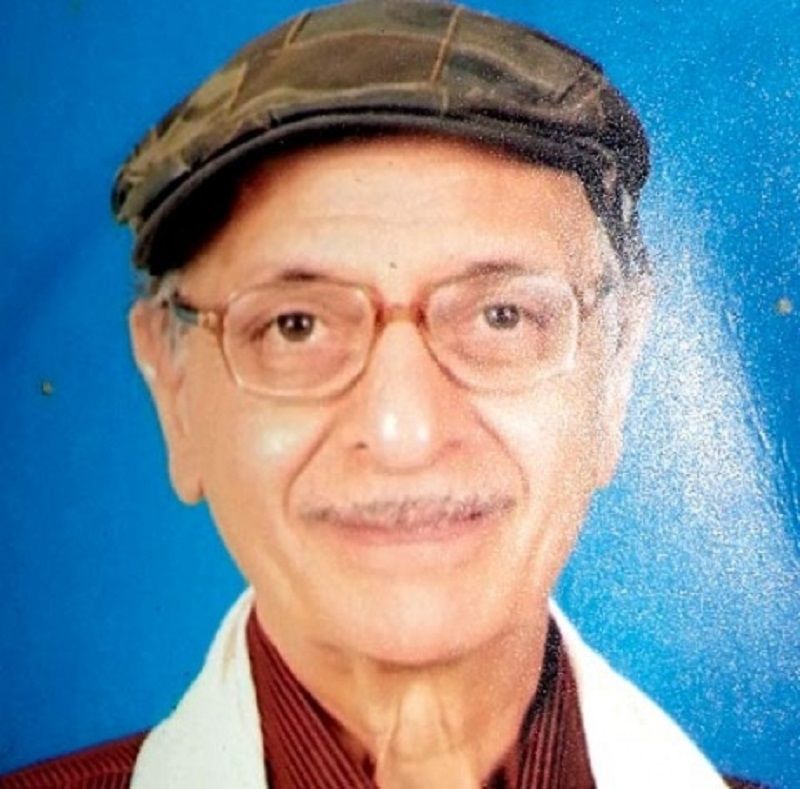 Daughter- Kandlla |
| Parents | Father- Kartar Singh Hitkari (poet) Mother- Raj Bibi (school teacher) |
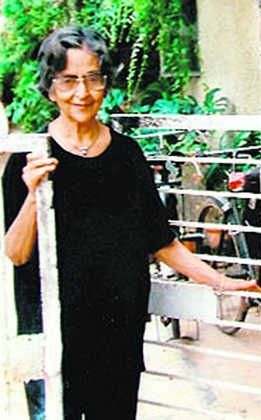
Some Lesser Known Facts About Amrita Pritam
- Amrita Pritam was an Indian novelist and poet who is known for writing Punjabi and Hindi poets and novels. She is best known for her poem ‘Ajj aakhaan Waris Shah nu’ which was dedicated to Waris Shah, an 18th-century Punjabi poet, and expressed her pain over massacres during the partition of India. She died on 31 October 2005 due to a long-running illness.
- She was born in Punjab, but after her mother’s death, she moved to Lahore with her father. Amrita’s father knew the Braj Bhasha language, and he was a pracharak – a preacher of the Sikh faith. Her mother died when she was eleven years old. After her mother’s death, she used to feel very lonely and started to express her sadness by writing at an early age. In an interview, she talked about how she lost faith in god after her mother’s death and said,
I was very young and was crying near my mother’s bed as she was on her last breath. One of my friends came by and bid me thus- Amrita, wake up. Don’t cry. God always listens to children. Go! Pray to God for you mother’s life. I got up and started praying fervently for my mother’s life, but maybe her time was up and she passed away. My prayer was not accepted by the almighty. This incident left a lasting impression on my mind.”
- Her first poem Amrit Lehran got published in 1936 when she was sixteen years old. She got married to Pritam Singh at the age of sixteen with whom she was engaged since she was a child. She changed her name from Amrit Kaur to Amrita after getting married to Pritam.
- She migrated to India in 1947 when India was partitioned into the independent states of India and Pakistan. During the partition in 1947, she travelled from Dehradun to Delhi and was pregnant with her son. She gained a lot of popularity with her writings in India and remained popular in Pakistan as well.
- She started her journey by writing romantic poems, but later, she shifted to writing progressive pieces. She became part of the Progressive Writers’ Movement.
- She was rebellious since childhood. She used to question all the discriminatory activities around her. In an interview, she said that her grandmother used different utensils for non-Hindu guests which made her angry when she was a child. In the interview, she further added,
I used to notice three glass tumblers kept away from all other pots and pans on a shelf in the corner of the kitchen.These were for use only when father’s Muslim friends were offered tea……when they came to visit him…… I was adamant; I would not drink from any other tumbler but one of those.”
- Pinjar (1950), a novel written by her in which she created the character Puro, was based on violence against women and became very popular. In 2003, a film titled ‘Pinjar’ was made on her novel. The film was shot in a border region of Rajasthan and Punjab.
- She wrote more than 100 books which included poetry, fiction, biographies, essays, a collection of Punjabi folk songs and an autobiography which was later translated into several Indian and foreign languages.
- In her book ‘Lok Peed,’ she wrote about the economic condition of Bengal after the Bengal famine of 1943.
- In 1956, she became the first and only woman to win Sahitya Akademi Award for Punjabi work.
- She was also active in social work. She participated in the inauguration of the first Janta Library in Delhi with social activist Guru Radha Kishan. The library is still situated at Clock Tower, Delhi.
- Her works were translated from Punjabi and Urdu to English, French, Danish, Japanese, and Mandarin. Her books were filmed by Dharti Sagar- Sippiyan as Kadambari (1965) and Unah Di Kahani as Daaku (Dacoit, 1976).
- Her autobiography, The Revenue Stamp, was banned by Punjabi University, Patiala.
- According to various reports, Director M. S. Sathyu paid a theatrical tribute to Amrita through his performance ‘Ek Thee Amrita’.
- Before partition, she worked at a radio station in Lahore. After coming to Delhi, she worked in the Punjabi service of All India Radio, Delhi until 1961.
- She got divorced in 1960 and started writing more feminist poems. In her poems, she shared her experience of her unhappy marriage. In an interview, she talked about how she left her husband and became a more creative writer and said,
It is true that I was married off while I was still very young. After marriage I did not find that mahol (environment) that a writer needs for his or her creativity to thrive. So I decided to create my own environment and sow my creative seeds (she left her husband on amicable terms with her two children, he himself encouraged her to leave in order to pursue her life as a writer). To gain something, you have to be willing to lose something. You have to be willing to make sacrifices to nourish your passions. What is also required is a lot of conviction in your pursuits. I wanted to be able to write at all costs, and I did.”
- After divorcing her husband, she was in love with poet Sahir Ludhianvi, but he left her and married singer Sudha Malhotra. After their breakup, she was lonely for a long time and her sadness was reflected in her poetry. Amrita talked about her relationship with Sahir in her autobiography Rasidi Ticket. In the book, she said that she would spend hours looking into his eyes. She also wrote that she would smoke leftover cigarettes by Sahir. In the interview, she added,
I would keep these remaining cigarettes carefully in the cupboard after he left. I would only light them while sitting alone by myself. When I would hold one of these cigarettes between my fingers, I would feel as if I was touching his hands… This is how I took to smoking. Smoking gave me the feeling that he was close to me. He appeared, each time, like a genie in the smoke emanating from the cigarette.”
- Later, she found love in writer Inderjeet Imroz. They lived together for forty years before she died in 2005. They got into a live-in relationship at a time when it was shameful to even mention about it. They lived in a house in Hauz Khaz, Delhi. Imroz took care of Amrita’s ex-husband Pritam when he was sick, and he even used to drop her children at school on his scooter. Imroz used to design her book covers and made her the subject of his several paintings. Their love story is mentioned in the book, Amrita Imroz: A Love Story. Before dying, she wrote the poem, Main tainu pher milaangi (I will meet you again)’, for her partner Imroz. In an interview, Imroz talked about his love for Amrita and said,
I had a bicycle then and started saving money, and bought a scooter soon. I met her and said now on we will go on a scooter to the AIR building. She looked at me and asked, ‘Why have you met me so late?’ I said may be, I came of age late and the money too came late.”
- She used to edit Nagmani, a monthly magazine in Punjabi with Imroz. She also wrote introductions for several books of Osho, including Ek Onkar Satnam. Later, she also started writing spiritual works including Kaal Chetna (“Time Consciousness”) and Agyat Ka Nimantran (“Call of the Unknown”). She had also published autobiographies including Kala Gulab (“Black Rose”, 1968), Rasidi Ticket (“The Revenue Stamp”, 1976), and Aksharon kay Saayee (“Shadows of Words”).
- In 1986 she was nominated to the Rajya Sabha, the upper house of the Indian parliament.
- After her death, in 2007, lyricist Gulzar made an audio album titled, ‘Amrita recited by Gulzar’ in which there were poems of Amrita Pritam recited by him.
- In 2012, Amrita’s son was murdered at his office in Elysee Colony, Borivilli, Mumbai. He was murdered by two people who came to his office pretending to give donations. After an investigation into his murder case, police found pornographic CDs from his flat in which some models and actors were featured.
- On 31 August 2019, she was honoured by Google when they made a doodle for her on her 100th birth anniversary. Google posted,
Today’s Doodle celebrates Amrita Pritam, one of history’s foremost female Punjabi writers, who ‘dared to live the life she imagines.’ Born in Gujranwala, British India, 100 years ago today, Pritam published her first collection of verse at the age of 16.”
References/Sources:

